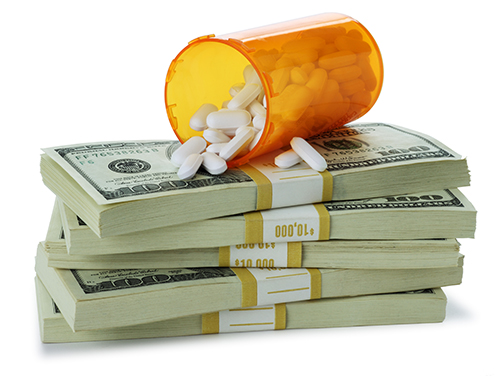One of the biopharma industry’s two key trade groups yesterday called for replacing the current system that allows drug manufacturers to offer rebates in return for their medicines being given preference on the formularies of pharmaceutical benefits managers (PBMs), insurers, employer groups, and other entities in the prescription drug supply chain.
Pharmaceutical Research and Manufacturers of America (PhRMA) spoke out two months after Trump unveiled his plan for reducing drug prices for Americans, detailed in: “American Patients First: The Trump Administration Blueprint to Lower Drug Prices and Reduce Out-of-Pocket Costs.”
The Blueprint decries the current system of rebates based on a percentage of the list price of the drug by tying it to the sky-high price of many prescription medicines: “What had been a hidden negotiation and wealth transfer between drug manufacturers and PBMs is now a direct increase on consumer out-of-pocket spending that likely decreases drug adherence and health outcomes.”
In its 130-page response to the Blueprint, summarized here, PhRMA responded by urging the Trump administration to instead craft new policies that would have PBMs and insurers be paid a fee based on the value their services provide.
“If you move to the model that we’re suggesting, where all of those supply chain entities get paid based on the value of the services they provide, rather than the value that we provide, I think we’re moving the system in the right direction,” Stephen J. Ubl, PhRMA’s president and CEO, said during a briefing with reporters.
PhRMA has not projected the savings to patients, in dollars or percentage, from its proposals to overhaul rebates, says Lori Reilly, EVP, policy, research and membership, PhRMA.
“We want to move to a system where we’re focused on the best drug at the highest value at the lowest net price,” Reilly said, answering a GEN question during the briefing. “If we can pull incentives in the direction that health plans and PBMs are rewarding the drug that delivers the best value at the lowest price, that is indifferent to the level of rebates that medicine carries but rather focused on getting to that lowest price, we think that’s a win for the system.
“And it will get better medicines to patients, the right medicines, hopefully delivered at a lower cost than what we have today,” Reilly added.
She and Ubl said that PhRMA agrees with Trump’s premise that federal policies on drug pricing are overdue for an overhaul: “We agree that the status quo is not working in the best interest of patients, and that our healthcare system needs to change,” Ubl said.
Envisioning ‘A System Without Rebates’
PhRMA’s proposed policy change is similar to one that has gained support from Secretary of Health and Human Services (HHS) Alex M. Azar II. At a U.S. Senate hearing last month, Azar suggested the possibility of eliminating rebates at a Senate hearing. “We may need to move toward a system without rebates, where PBMs and drug companies just negotiate fixed-price contracts,” Azar said before the Senate Committee on Health, Education, Labor and Pensions (HELP).
However, the Pharmaceutical Care Management Association (PCMA), which represents PBMs, has warned that getting rid of rebates and other price concessions would leave patients and payers, including Medicaid and Medicare, at the mercy of drug manufacturer pricing—and has called for drug manufacturers to instead cut their prices.
“At a time of rising drug prices, we think it would make no sense to undermine plans' ability to negotiate rebates or other price concessions from drugmakers. That would raise costs while offering no corresponding benefit to either consumers or taxpayers,” PCMA stated in its 170-page response to the Blueprint
PCMA cited a study it commissioned that concluded premiums for the Medicare Part D prescription drug benefit program would have been 52% higher this year without rebates: “There’s absolutely no evidence to support the notion that drug companies will lower their prices if they no longer offer rebates in Part D.”
PhRMA also called for changes to Part D that in part would require patients to receive a share of negotiated rebates at their pharmacy, as well as impose a maximum out-of-pocket spending limit on drugs. But the industry group opposes transitioning some drugs now covered by Part B, which covers outpatient office visits, into Part D, as the Trump administration is considering, saying it would increase patient costs, while introducing closed formularies that would limit access to treatments by precluding patients from switching between therapies.
The industry group also expressed opposition to another idea under study by the Trump administration—including the list price of prescription drugs in direct-to-consumer advertisements. In a briefing after the release of the Blueprint in May, Azar said the FDA and Centers for Medicare and Medicaid Services were examining how drug companies should be required to post list prices in the ads.
“Such a requirement could confuse patients since the list price often does not represent what they would actually be required to pay, and the requirement could also have the unintended and harmful consequence of deterring patients from seeking care,” PhRMA stated in its response to the Blueprint. “Moreover, any such requirement would raise significant legal issues, including serious First Amendment concerns.”



